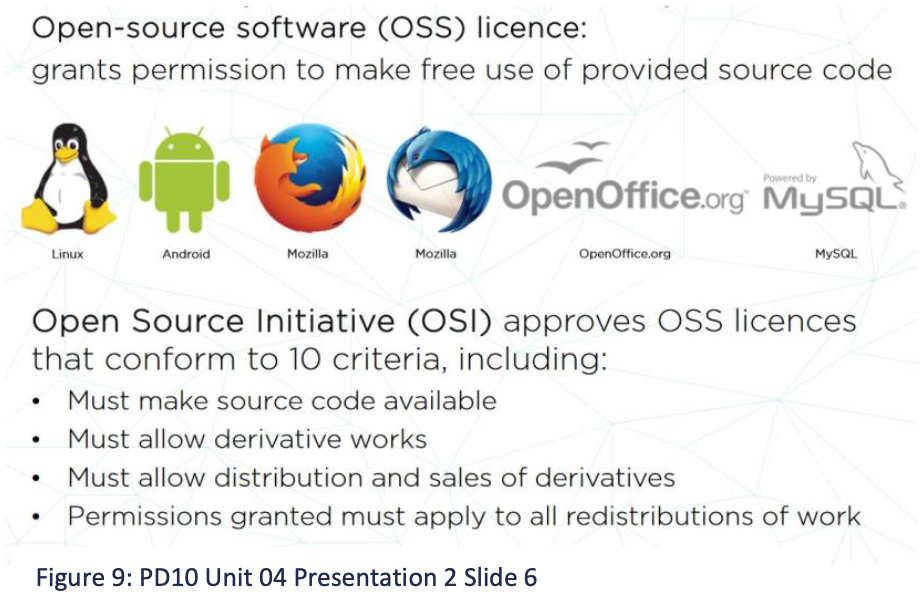Open Source License
The earliest public licenses were open-source software (OSS) licenses. These licenses allow others to make use of the software code of a program. The intent of open-source licensing is to promote creativity through collaboration.
It has the intention of making the source code of a software program publicly available, so that others can take the code and use it and hopefully also make better programs.
Since at Blackberry QNX, I’m working on open-source projects and porting them to QNX, we had to include a License.md file too. Is it considered a derivative work? Should it be released under the same open-source license?
Examples of open-source projects:
- Linux operating system
- Android operating system that runs on Android phones and tablets
- Firefox web browser
- Thunderbird email clien
- Open Office
- MySQL databases

The Open Software Initiative (OSI) will officially sanction a licence as being open-source if it conforms to 10 criteria, a few of which are listed here:
- The source code is made available to enable the creation of derivative works;
- It must be possible to create, distribute, and sell derivative works;
- An open-source licence cannot require that derivative works be available free of charge or be licensed as open-source;
- Any permission granted to the licensee of the work must automatically be granted to anyone who licenses a redistribution of the work.
Note
This does not mean that permissions apply to derivative works. The permissions apply to redistributions of the original work as they appear in derivative works. Most notably, it means that as a work continues to evolve through iterative collaboration, the licensee of a derivative work never has to go back to the original licensor and seek originally granted permissions to the original work.